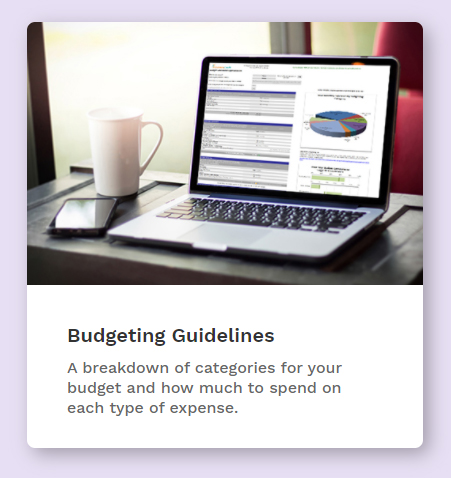Does Social Media Increase How Much You Owe on Your Credit Cards?
By Julie Jaggernath
Did you know that your credit card balances could be impacted by what you see on social media? No matter which platform you use, social media can be a great tool for keeping up on the latest news from friends, family, and celebrities. However, when your news feeds are filled with everything you don’t have, feelings of FOMO (the fear of missing out) or an overwhelming urge to keep up with the Joneses can spill over into your spending choices.
Feeling Down Can Lead to Spending
We can already be our own worst critic, so much so that some social media platforms have even been linked to causing feelings of depression and anxiety with its users. These feelings can lead to increased spending because when we continually compare ourselves to others, it’s easy to feel dissatisfied with what we have or that we don’t measure up. We look at the grass on the other side and think that it’s greener, forgetting that the grass is green wherever you water it. Rather than missing out on the positives of social media, limit when and how you use it instead of abandoning it altogether.

Don’t Give Others Control Over Your Buying Choices
When our social media use leads to more negative emotions than positive ones, the affect on our spending can lead to credit card bills that are hard to pay off. Chasing likes and upvotes based on the highlights reel we see from friends, celebrities, and influencers, can leave us feeling empty and discontent. To alleviate our negative feelings, many of us end up spending beyond our means. This unfortunately, only takes us further away from the ideal life we so desperately want.
Don’t give others that much control over your spending choices. You work hard for what you have. Set realistic financial goals and chase those instead. While the journey of going after your goals might not be ‘Gram-worthy,’ the outcome sure can be!
Do You Use Social Media Channels With Payment Platforms?
Making it easy and convenient to shop for what we want is another way social media contributes to our use of credit cards. What we might want is revealed by the posts we look at, those we scroll past, and which ones we interact with. That game about what your photos say about your personality is so much more than a harmless fad. Pair the data you’re readily sharing with the loyalty and payment cards saved on your smartphone, and you’ve just given away the bank. Social media companies couldn’t be happier when its users share this much lucrative information about their habits and demographics. It allows companies to target ads, promote posts, and make shopping as easy as a click or two.
How We Use Social Media Can Contribute to Our Debt
Stop giving away the bank. Distinguish more accurately between your needs and wants. Remove the payment details and loyalty card information from all of the apps on your phone, including PayPal, Amazon, and any platform that allows for 1-click ordering. Shop only in private browsing mode and enter your details every time. This will not only help slow down impulsive spending, but it could lead to some better prices for what you do need to buy. Companies are known to use algorithms to change the price you see depending on the type of device you’re using as well as a whole host of other digitally available factors. Protecting as many of your details as you can helps avoid being subjected to dynamic pricing.
To further help limit impulsive buying, unsubscribe from email marketing campaigns that you really don’t want to see. Because these emails come through to our devices, tracking details about how we interact with the information helps marketers carefully target what they show us. Filter the few subscriptions to your favourite stores into a separate folder. Only look at those emails when you’re shopping for something you need.
Social Media Means the Joneses Are Everywhere
There was a time when keeping up with the Joneses was cheaper and almost affordable. That changed with the proliferation of social sharing. Now it’s not just the Joneses in our neighbourhood we want to keep up with, it’s all of the Joneses in every neighbourhood everywhere. Stopping ourselves from becoming overly envious and going on a spending spree takes a lot of self-control – some days we’re up to the challenge, and other days, that’s when we may resort to retail therapy at the expense of our long-term wellbeing.
Remember, wearing non-name brand clothing or buying store brands at the grocery store doesn’t mean you’re broke. It means you’re making other choices with your money and aren’t worried about impressing a community who might not even notice. We are subtly motivated to buy what others are buying when we see their purchases because we want to fit in, keep up, or get ahead. Start a new tradition and buck the trend – buy what’s right for you and keep your spending to yourself. It might just catch on and help your real friends do the same.
Friending to Spending Each Platform’s Influence On Your Wallet is Different
How you use different social media platforms affects your spending, but not only in the ways you may expect. It boils down to how they make you feel, because feeling terrific means spending to keep that feeling, and feeling down means spending to shake that feeling.
If you use Twitter or Reddit to catch up on current events or news-worthy items, you may be neither overly happy nor overly down. Using Facebook to chat with friends or to reach out to a company for customer service, or Instagram to see what others are up to, can make you feel pretty good about yourself which, in turn, can spur spending. The underlying mindset with Pinterest is feeling positive, even planning more projects that you can reasonably take on, and the reality is that gathering supplies is motivation to spend.
Home Improvements to Save Money That You Can Do in One Weekend
Think about your go-to platforms for information, connection, and shopping to determine how they make you feel and influence your spending. It can even help to track your social media use, kind of like tracking your spending, to identify your habits. This will give you insight into how much social media is causing you to spend. But resist the urge to give it up entirely. That’s a drastic step in this day and age, and one that would cause you to miss out on the good parts too.
If you want to decrease how much time you spend consuming social media, consider making your choices specific to certain platforms. Then schedule blocks of time for yourself, e.g. 15-minutes, to check your social channels at set times throughout the day. Unfollow anyone who isn’t in line with your goals or who isn’t enriching your life in any way. Log out of accounts on your phone, logging in only during set times. Focus on living in the moment and appreciating real life as it happens.
4 Money Management Tips We Can Learn from Social Media Trends
The Influence of Social Media on Your Spending Habits and Credit Card Bills
It’s easy to blame social media for our spending habits or credit card balance. However, making purchases because we want to keep up, show off, or get ahead has been around much longer than the first social accounts we could open. There are many ways social media can enrich our lives. It helps us keep in touch with friends, see photos of family abroad, educate ourselves, build communities around specific interests, disseminate vital information, and even provide entertainment. But as Dave Ramsey once said, “We buy things we don’t need with money we don’t have to impress people we don’t like.” Social media has its place, and it is up to us to keep it in a place that works for us.
Last Updated on June 24, 2024





